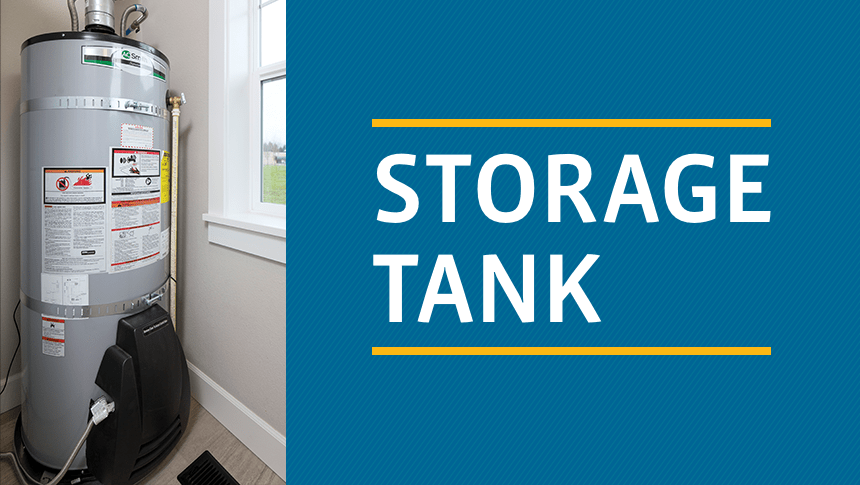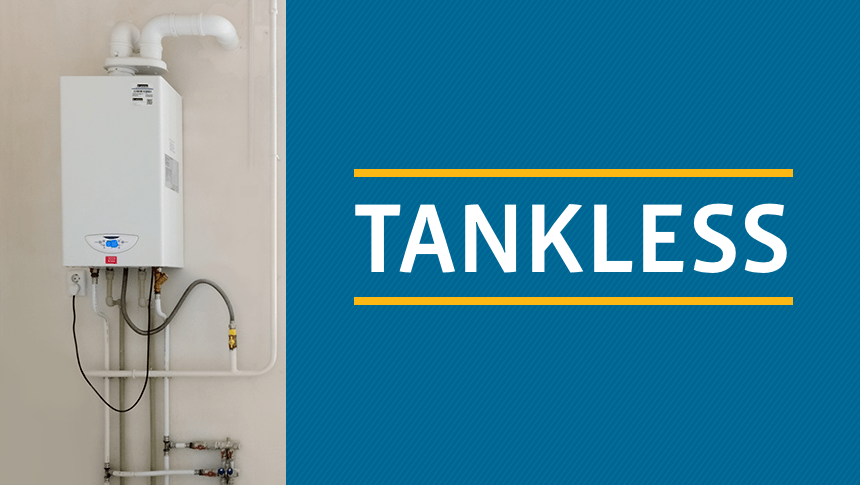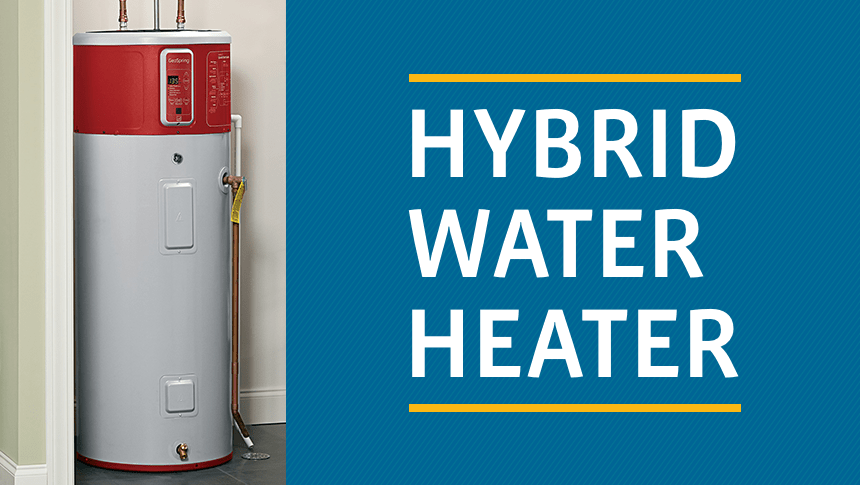What to consider when buying a new water heater
Water Heater Updated: September 17, 2021

In the market for a new water heater? Use this guide to help you choose the right fit for your home and budget.
As anyone who has dealt with a flooded basement before will tell you, the best time to replace your water heater is before you need to. If your water heater is beyond 10 years of age, it may be time for an upgrade.
Deciding between gas or electric water heating depends on a variety of personal preferences and installation costs. Oftentimes customers will choose a water heater that uses the same fuel as the one being replaced. However, this is not always necessary. If you are interested in a specific type of water heater (gas tankless or electric hybrid), do not hesitate to ask your installer what steps would be necessary to make it work within your home. You may find additional electrical or gas piping costs narrow your choices, but it is good to consider the lifetime operational costs and performance of the water heater when comparing installation costs.
Water heater options span a wide range of prices, from as low as $500 and up to $1,500 plus. Quite often the cost of operation decreases as the initial cost of the water heater increases.
As water heating accounts for up to 20% of the typical home’s energy use, it’s worth considering the operating costs as well as the initial price of a new water heater. Higher efficiency water heaters may wind up saving you more in the long run, even if they cost more initially. Check the yellow Energy Guide label attached to each water heater to compare estimated annual energy costs. Also, energy.gov has developed a resource guide for comparing operational costs across the various water heater types. In order to use this tool, you will need to know the unit cost of gas or electric from your utility provider (available on your monthly statement).
Storage tank
The most common type of water heater, storage tank water heaters feature a large reservoir of water that is continually heated to a set temperature by gas or electricity. This straightforward design usually comes with a lower price tag, although keeping all that water at the desired temperature typically requires more energy use than other models. Visit the energy.gov website to learn more about storage tank water heaters.

Tankless
Rather than continually heating water in a large tank, tankless water heaters only heat water as needed. The result is less wasted energy and, when choosing a properly sized water heater, less worry about running out of hot water. This is due to the fact that the water is heated as it is delivered to the source (shower, sink, etc.) instead of pulling from a tank of previously heated water.
The size of your water heater represents the volume of water it can heat per minute and the increase of temperature it can support (from starting water temperature to desired temperature). The capabilities of the heating elements in the water heater determine the size of the system. Tankless units are available as either gas or electric models and come in a variety of sizes, although larger households that use around 85 gallons of water a day or more may require more than one.
While more expensive than conventional tank storage models, tankless water heaters’ lower operating costs, space-saving design and longer lifespan make them an attractive option for those looking for long-term value. Visit the energy.gov website to learn more about tankless water heaters.

Hybrid water heater
Hybrid water heaters, sometimes called heat pump water heaters, use electricity to capture heat from the surrounding air rather than generating their own. This makes them far more energy efficient than conventional electric storage tank models, saving the average household up to $300 a year. Hybrid water heater units feature a supplemental electrical heating system that kicks in when demand for hot water is high. Some models also include smart features that allow you to remotely adjust temperatures and modes with your smartphone, receive failure alerts and more.
All that tech does come with some installation hurdles, though. Because they require more space than other models and can lower the temperature of the surrounding area, hybrid water heaters work best when installed in a garage or another large unconditioned space. Visit the energy.gov website to learn more about hybrid water heaters.

Choosing the right size
Determining the right size water heater for your home can be tricky—and sometimes involves a bit of math. Your contractor or retail associate should be able to help you calculate the correct size for your needs. If you’d like to run the numbers yourself, the U.S. Department of Energy has a handy guide.
